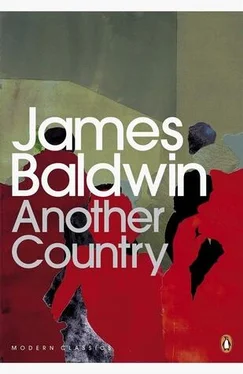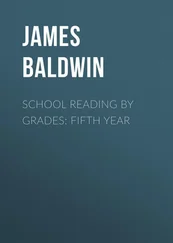James Baldwin - Another Country
Здесь есть возможность читать онлайн «James Baldwin - Another Country» весь текст электронной книги совершенно бесплатно (целиком полную версию без сокращений). В некоторых случаях можно слушать аудио, скачать через торрент в формате fb2 и присутствует краткое содержание. Год выпуска: 2001, Издательство: Penguin Books, Жанр: Современная проза, на английском языке. Описание произведения, (предисловие) а так же отзывы посетителей доступны на портале библиотеки ЛибКат.
- Название:Another Country
- Автор:
- Издательство:Penguin Books
- Жанр:
- Год:2001
- ISBN:нет данных
- Рейтинг книги:3 / 5. Голосов: 1
-
Избранное:Добавить в избранное
- Отзывы:
-
Ваша оценка:
- 60
- 1
- 2
- 3
- 4
- 5
Another Country: краткое содержание, описание и аннотация
Предлагаем к чтению аннотацию, описание, краткое содержание или предисловие (зависит от того, что написал сам автор книги «Another Country»). Если вы не нашли необходимую информацию о книге — напишите в комментариях, мы постараемся отыскать её.
is a novel of passions — sexual, racial, political, artistic — that is stunning for its emotional intensity and haunting sensuality, depicting men and women, blacks and whites, stripped of their masks of gender and race by love and hatred at the most elemental and sublime. In a small set of friends, Baldwin imbues the best and worst intentions of liberal America in the early 1970s.
Another Country — читать онлайн бесплатно полную книгу (весь текст) целиком
Ниже представлен текст книги, разбитый по страницам. Система сохранения места последней прочитанной страницы, позволяет с удобством читать онлайн бесплатно книгу «Another Country», без необходимости каждый раз заново искать на чём Вы остановились. Поставьте закладку, и сможете в любой момент перейти на страницу, на которой закончили чтение.
Интервал:
Закладка:
He smiled, too, a pale, weary smile. “All right. But I want something real to happen to me. I do. How do you find out about”—he grinned, mocking her—“life? About women? Do you know a lot about men?”
The great numbers above faraway Columbus Circle glowed in the gray sky and said that it was twelve twenty-seven. She would get home just in time to make lunch.
Then the depression she had been battling came down again, as though the sky had descended and turned into fog.
“Once I thought I did,” she said. “Once I thought I knew. Once I was even younger than you are now.”
Again he stared at her but this time said nothing. For a moment, as the road swerved, the skyline of New York rose before them like a jagged wall. Then it was gone. She lit a cigarette and wondered why, in that moment, she had so hated the proud towers, the grasping antennae. She had never hated the city before. Why did everything seem so pale and so profitless: and why did she feel so cold, as though nothing and no one could ever warm her again?
Low in his throat Vivaldo hummed the blues they had heard at the funeral. He was thinking of Ida, dreaming of Ida, rushing ahead to what awaited him with Ida. For a moment she hated his youth, his expectations, possibilities, she hated his masculinity. She envied Ida. She listened to Vivaldo hum the blues.
3
On a Saturday in early March, Vivaldo stood at his window and watched the morning rise. The wind blew through the empty streets with a kind of dispirited moan; had been blowing all night long, while Vivaldo sat at his worktable, struggling with a chapter which was not going well. He was terribly weary — he had worked in the bookstore all day and then come downtown to do a moving job — but this was not the reason for his paralysis. He did not seem to know enough about the people in his novel. They did not seem to trust him. They were all named, more or less, all more or less destined, the pattern he wished them to describe was clear to him. But it did not seem clear to them. He could move them about but they themselves did not move. He put words in their mouths which they uttered sullenly, unconvinced. With the same agony, or greater, with which he attempted to seduce a woman, he was trying to seduce his people: he begged them to surrender up to him their privacy. And they refused — without, for all their ugly intransigence, showing the faintest desire to leave him. They were waiting for him to find the key, press the nerve, tell the truth. Then, they seemed to be complaining, they would give him all he wished for and much more than he was now willing to imagine. All night long, in an increasing rage and helplessness, he had walked from his worktable to his window and back again. He made himself coffee, he smoked cigarettes, he looked at the clock — and the night wore on, but his chapter didn’t and he kept feeling that he ought to get some sleep because today, for the first time in several weeks, he was seeing Ida. This was her Saturday off, but she was having a cup of coffee with one of her girl friends in the restaurant where she worked. He was to meet her there, and then they were to visit Richard and Cass.
Richard’s novel was about to be published, and it promised to be very successful. Vivaldo, to his confusion and relief, had not found it very remarkable. But he had not had the courage to say this to Richard or to admit to himself that he would never have read the novel if Richard had not written it.
All the street sounds eventually ceased — motors, and the silky sound of tires, footfalls, curses, pieces of songs, and loud and prolonged good nights; the last door in his building slammed, the last murmurs, rustling, and creaking ended. The night grew still around him and his apartment grew cold. He lit the oven. They swarmed, then, in the bottom of his mind, his cloud of witnesses, in an air as heavy as the oven heat, clustering, really, around the desired and unknown Ida. Perhaps it was she who caused them to be so silent.
He stared into the streets and thought — bitterly, but also with a chilling, stunned sobriety — that, though he had been seeing them so long, perhaps he had never known them at all. The occurrence of an event is not the same thing as knowing what it is that one has lived through. Most people had not lived — nor could it, for that matter, be said that they had died — through any of their terrible events. They had simply been stunned by the hammer. They passed their lives thereafter in a kind of limbo of denied and unexamined pain. The great question that faced him this morning was whether or not he had ever, really, been present at his life. For if he had ever been present, then he was present still, and his world would open up before him.
Now the girl who lived across the street, whose name, he knew, was Nancy, but who reminded him of Jane — which was certainly why he never spoke to her — came in from her round of the bars and the coffee houses with yet another boneless young man. They were everywhere, which explained how she met them, but why she brought them home with her was a somewhat more sinister question. Those who wore their hair long wore beards; those who wore theirs short felt free to dispense with this useful but somewhat uneasy emphasis. They read poetry or they wrote it, furiously, as though to prove that they had been cut out for more masculine pursuits. This morning’s specimen wore white trousers and a yachting cap, and a paranoiac little beard jutted out from the bottom half of his face. This beard was his most aggressive feature, his only suggestion of hardness or tension. The girl, on the other hand, was all angles, bone, muscle, jaw; even her breasts seemed stony. They walked down the street, hand in hand, but not together. They paused before her stoop and the girl staggered. She leaned against him in an agony of loathing, belching alcohol; his rigidity suggested that her weight was onerous; and they climbed the short steps to the door. Here she paused and smiled at him, coquettishly raising those stony breasts as she pulled back her hair with her hands. The boy seemed to find this delay intolerable. He muttered something about the cold, pushing the girl in before him.
Well, now, they would make it — make what? not love, certainly — and should he be standing at this window twenty-four hours hence, he would see the same scene repeated with another boy.
How could they endure it? Well, he had been there. How had he endured it? Whiskey and marijuana had helped: he was a pretty good liar and that had helped; and most women inspired great contempt in him and that had helped. But there was more to it than that. After all, the country, the world — this city — was full of people who got up in the morning and went to bed at night and, mainly, throughout their lives, to the same bed. They did whatever it was they were supposed to do, and they raised their children. And perhaps he didn’t like these people very much, but, then, he didn’t, on the other hand, know them. He supposed that they existed because he had been told that they did; presumably, the faces he saw on subways and in the streets belonged to these people, who were admirable because they were numerous. His mother and father and his married sister and her husband and their friends were part of this multitude, and his younger brother would belong to them soon. And what did he know about them, really, except that they were ashamed of him? They didn’t know that he was real. It seemed that they didn’t, for that matter, know that they were real, but he was insufficiently simple to find this notion comforting.
He watched a lone man come up the street, his tight black overcoat buttoned to the neck, looking back from time to time as though he hoped he were being followed. Then the garbage truck came up the street, like a gray brainless insect. He watched the garbage being loaded. Then there was nothing, no one. The light was growing stronger. Soon, alarm clocks would begin to ring and the houses would expel the morning people. Then he thought of the scene which would now be occurring between the boy and the girl in the room.
Читать дальшеИнтервал:
Закладка:
Похожие книги на «Another Country»
Представляем Вашему вниманию похожие книги на «Another Country» списком для выбора. Мы отобрали схожую по названию и смыслу литературу в надежде предоставить читателям больше вариантов отыскать новые, интересные, ещё непрочитанные произведения.
Обсуждение, отзывы о книге «Another Country» и просто собственные мнения читателей. Оставьте ваши комментарии, напишите, что Вы думаете о произведении, его смысле или главных героях. Укажите что конкретно понравилось, а что нет, и почему Вы так считаете.












